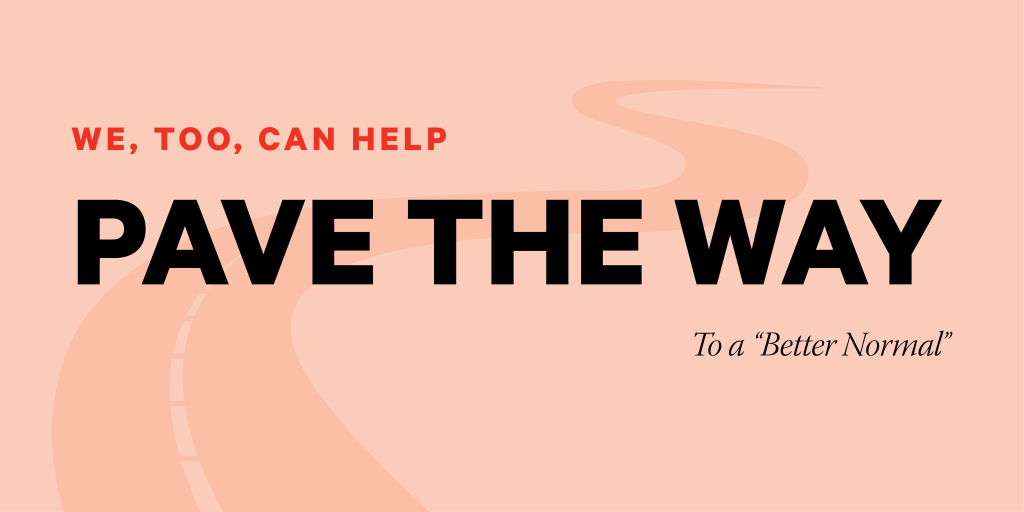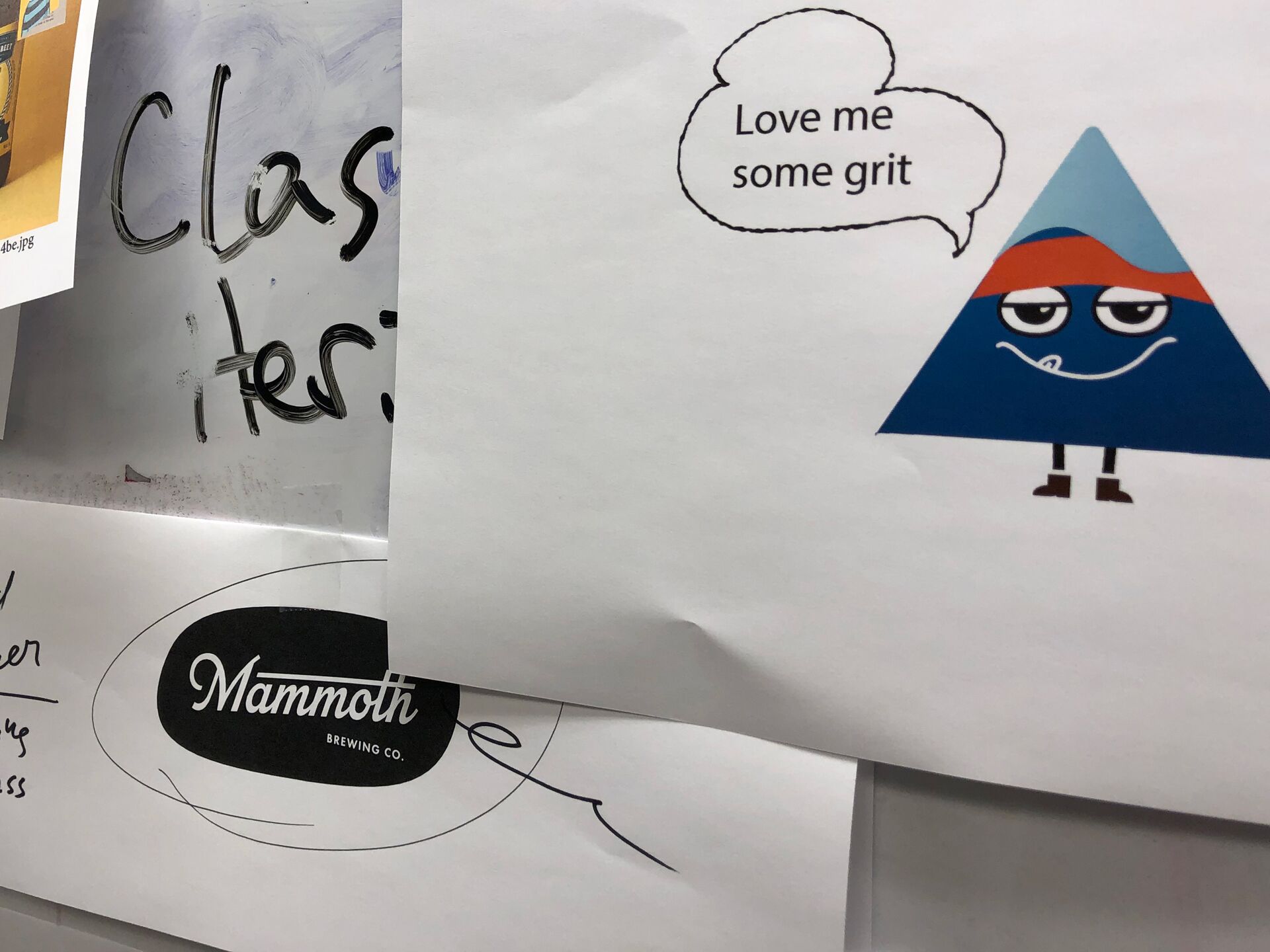Marketers: We, Too, Can Help Pave the Way to a “Better Normal”

My award for the most-overused marketing cliché of 2020 go to “the new normal.”
(Second place, if you’re wondering, goes to “In these challenging times …”)
It’s not just that “the new normal” is so horribly overused. I’m bothered that the phrase seems to indicate that we’re willing—eager, even—to settle back into lives that look quite a bit like “the old normal.”
I understand the appeal of that, but I can’t help but think that in settling for that notion, we’re passing up on a rare opportunity—as marketers and as human beings—to create a “better normal” in coming months.
Faced with the profound threat posed to their health by COVID-19 and the severe disruptions of daily life that resulted from the fight against the pandemic, consumers have been taking stock of their lives. They are thinking anew about what’s important to them. They are beginning to make decisions that support their most important needs.
So what are those most important needs?
Susan Kresnicka built her career as an anthropologist studying the way that consumers’ most basic needs influence their behavior as consumers. If you think about it, that’s the most foundational research in a marketer’s toolbox.
Kresnicka’s firm, Kresnicka Research & Insights, summarizes some of its recent work this way:
“People are driven by three very basic needs — the need to take care of themselves, the need to make connections with other people and the need to express their identity.”
These three basic needs find expression in sometimes surprising ways.
A Closer Look at Self-Care
“Self care” isn’t about a glass of white wine out on the patio at the end of a challenging day. It’s deeper. It’s about feeling safe and secure. It’s about problem-solving that keeps our minds agile. It’s about finding hope.
The need for connections extends beyond friendships or participation in organizations of like-minded people. We also want to belong to what Kresnicka calls “imagined communities” with people who enjoy the same sort of music, gather at the same community holiday celebrations or attend the same protest rallies.
Identity, the firm’s research finds, is multi-dimensional, complex, dynamic—and too often oversimplified to a single categorization such as “Millennial” or “Asian-American.” For consumers, Identity is the all-encompassing story of their lives. It impacts nearly every dimension of the way they understand and navigate the world.
Interesting stuff at any time, but even more so today.
Usually, these basic needs run in the background of our minds. We don’t reflect on them, and we seldom make a conscious decision on the basis of a basic need unless it is dramatically unmet.
Has anyone ever thought, “I’m going to buy that T-shirt from Carmel-by-the-Sea so that I can signal my vacation experience to others who might want to make a social connection with me on that basis?”
Maybe not. Even so, trends in consumer insights indicate that our drive to fulfill our most basic needs have surged to the front and center in the wake of a pandemic that has left many feeling isolated, anxious and with many of their long-held assumptions about what they might be doing with their lives profoundly unsettled
Data, Telling The Story of Us
Google reports that YouTube content that address core needs—everything from instructional videos on cutting your own hair to a major spiritual address by Pope Francis—have been uniformly sought out by consumers since the arrival of COVID-19 and its disruptions. The trend is so strong, in fact, that Google suggests YouTube traffic demonstrates that all people, despite their many differences, share the same core needs.
I don’t disagree with that, but I think we can take this a step further.
As marketers, we always focus on creating and communicating products, services and experiences that meet a consumer need.
Often, that need is difficult to define. And sometimes, when all else fails, we try to convince consumers that they have a previously unrecognized need for the purpose of pushing our offerings as a solution to it.
Right now, however, we need to reframe our understanding of our roles. We need to understand that our audiences are not merely transactions that impact our reporting and balance sheets, and instead are fully realized people.
When we reframe our understanding of our work in this way, it becomes that much easier for us to know what it is that the constituencies we communicate with actually need and want.
Re-Examining the Foundations of What We Do
People need care. They need compassion. They need time, nourishment, and attention. They need connectivity.
Our task, then, is not to invent a solution to a problem that’s only tangential to their lives in the grand scheme—it is to develop and identify products, services, and experiences that help them comfort and take care of themselves. They are searching for that which will help them feel less lonely when wisdom dictates that they stay away from one another.
They want to know who they are in this new world and who they will become in future days.
Consumers are ready for authentic messaging that speaks to their very core. Brands that identify core needs and shape honest messages that help consumers find deep-felt fulfillment will be building valuable, long-lasting relationships.
Many brands and their marketers, in short, have an opportunity today to create a “better normal” in their relationships with consumers—one that is built on authentic acknowledgement and fulfillment of basic human needs.
We don’t need to settle for a “new normal” that’s nothing but the “old normal” in new packaging. This is our generation’s opportunity to create “a better normal”—built on the practice of compassion, genuine connection and care.
If we find the will, practice tenacity, really listen, and practice our craft with an ethic of intentional, compassionate service in mind, we can rise to this occasion.



